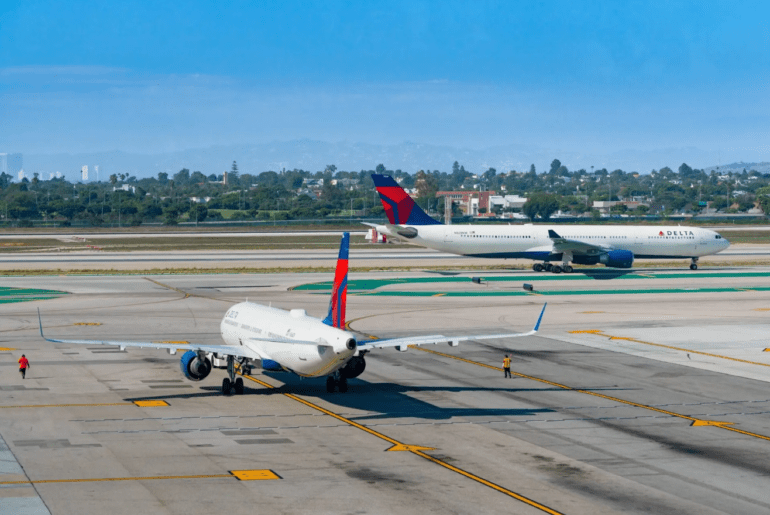TL;DR:
- Delta Air Lines embraces AI and machine learning to reshape aviation.
- Focus on improving customer experience and streamlining operations.
- Generative AI technologies will unify traveler interactions for a seamless journey.
- AI enhances data management processes and operational efficiency.
- Optimized baggage handling performance through AI-driven route planning.
Main AI News:
In the ever-evolving landscape of aviation, Delta Air Lines is embracing the transformative power of artificial intelligence (AI) and machine learning. As technology continues to reshape the travel industry, Delta’s unwavering commitment to improving the customer experience and optimizing operational efficiency is at the forefront of its strategy.
Traditionally, the traveler’s journey has been segmented into distinct phases, from ticket purchasing and check-in to security checks and boarding. However, Delta’s Chief Digital Officer, Eric Phillips, envisions a future where these discrete points seamlessly converge, creating a travel experience that is remarkably more streamlined and intuitive. Speaking at the prestigious Skift Global Forum conference in New York, Phillips emphasized the role of generative AI technologies in harmonizing customer data to eliminate the burdensome aspects of travel.
“Artificial intelligence,” Phillips declared, “holds the promise of making travel much more seamless and intuitive.” Delta’s overarching objective is clear: they aspire to shield their customers from the inherent complexities that the airline manages behind the scenes.
The aviation industry has long grappled with an overwhelming volume of data, ranging from historical records that inform revenue management systems to crucial data utilized by meteorologists and dispatchers in flight planning. Delta has been diligent in deploying various systems to manage these data reservoirs. Nevertheless, the dawn of AI and machine learning ushers in a new era of process optimization and data refinement, according to Phillips.
AI’s influence extends to even the most seemingly mundane aspects of aviation, such as baggage handling. By utilizing artificial intelligence, Delta can plot optimal routes for baggage handlers on airport ramps, ensuring the efficient movement of luggage between planes and terminals. This translates into significant gains in operational efficiency and a noticeable enhancement in Delta’s baggage handling performance.
Conclusion:
Delta Air Lines’ strategic embrace of AI and machine learning signifies a significant shift in the aviation market. By prioritizing the seamless customer experience and operational efficiency, Delta sets a precedent for the industry. This commitment to harnessing AI’s power positions Delta as a leader in shaping the future of air travel, with potential ripple effects on competitors and customer expectations.

